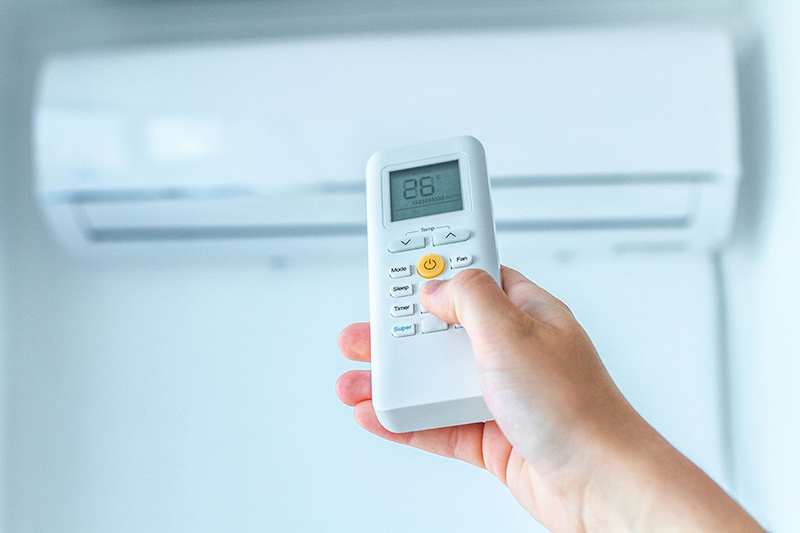
If your air conditioner’s evaporator coil is frozen solid, chances are that it’ll be hard to provide the same cooling to you, even if you’re using powerful Daikin 5 ticks or Mitsubishi 5 ticks models. Apart from completely rendering your unit useless, a frozen coil can be an indicator of a huge problem brewing.
Continuing to ignore the issue can even make your compressor burn out due to the pressure exerted on it. It can also spell hefty repair fees later on to fix it.
In order to troubleshoot your frozen evaporator coil, you have to first understand how it works and diagnose the problem.
Plausible Reasons for a Frozen Coil
What leads to a frozen evaporator coil?
When the coil takes in latent heat from the surroundings, it lowers the air’s ability to hold huge amounts of moisture in vapour form. As the air cools down, this vapour begins to condense into liquid form, which gradually falls on the evaporator coil.
Later on, it proceeds to drip onto a pan beneath the coil. It is always possible for frost to develop on the coil’s surface due to the condensate’s regular contact with the coil, coupled with the just-above freezing temperature of the coil’s external temperature.
When ice starts to build up on the coil, it will eventually become enveloped in ice, blocking the refrigerant in the coil from absorbing heat. This causes the unit to lose its cooling effectiveness.
Let the Coils Thaw
Before you proceed to diagnose and fix the problem, you need to give the frozen evaporator coil some time to liquefy. To do this, you can shut down your unit using the circuit breaker. If you wait for it to thaw naturally, it may take up to a day.
You can speed up the process by applying some form of heat to it. For example, you can position a hair dryer close by and keep it on. If the freezing is not serious, you can keep it on fan mode only.
Be careful to avoid overheating the coil or any of the lines connected to it.
Check for Physical Faults
Take a look at the evaporator coil to check if there is any physical damage visible to the eye. Some types of damage include dented pipes, defective fittings and bent fins. When this happens, don’t step in, but call your air conditioner technician to come down and fix it for you.
Check for Airflow Issues
Does your air conditioner system have sufficient airflow? If the air filters are choked with impurities, it can prevent air from flowing smoothly. Other reasons for airflow problems include damaged ductwork, dirty heat pump, faulty blower fan, and tight filter.
To fix this, simply change the air filter, and as an extra measure, vacuum the surrounding area. It’s a good habit to replace your air filter once a month when you use it the most.
Ensure that the coil doesn’t have any dust or dirt, and clean it if you see that mold or algae has collected around the surface of the coil. You should also check the airflow running through the supply and return vents and registers. Since it’s easy to damage the evaporator coil’s aluminium fins, it’s highly recommended to enlist the help of an experienced technician.